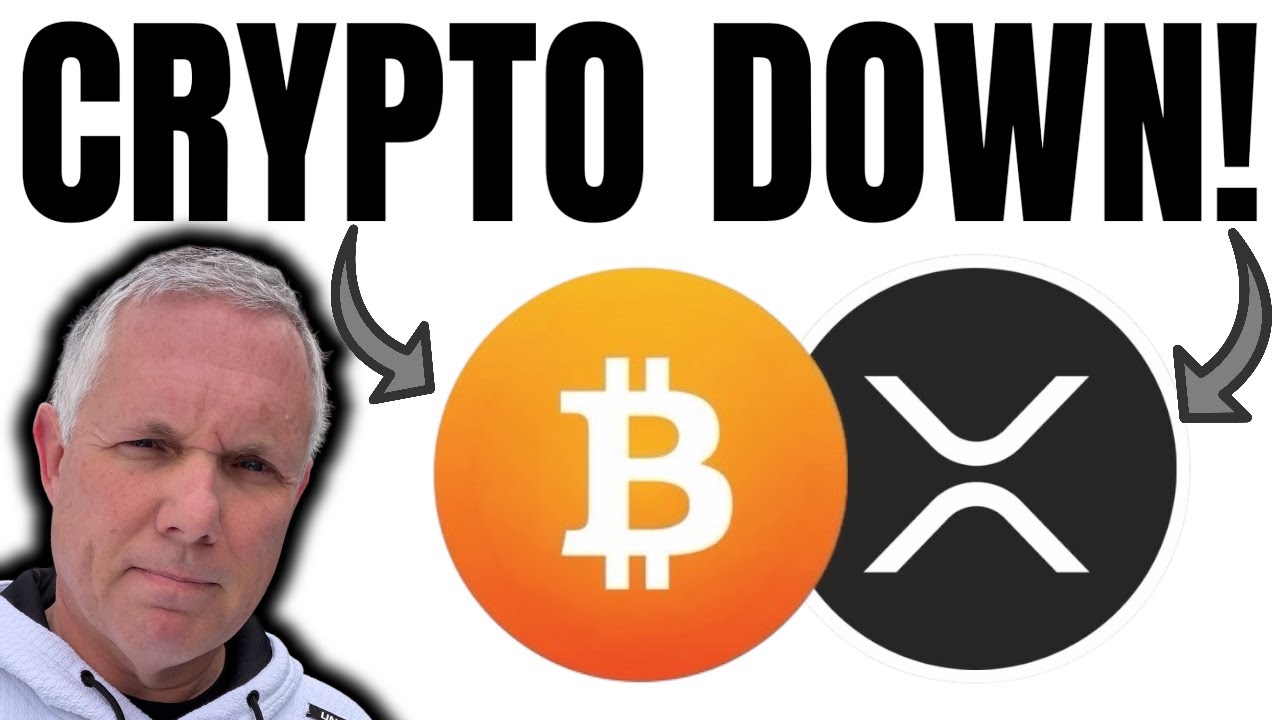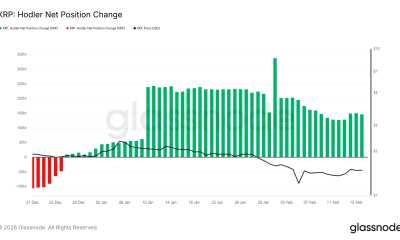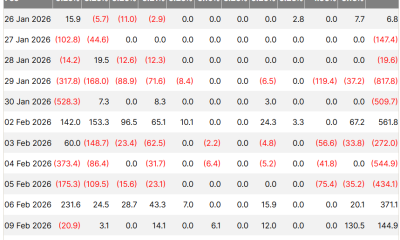Video
Fast Money #1 for the Mandel fam! $20K?

Fast Money #1 for the Mandel fam! $20K?
Subscribe to our channel:
http://bit.ly/FamilyFeudSub
Get the Family Feud board game:
https://familyfeud.shop
Play Family Feud online:
https://buzzrtv.com/play
Audition to be on the show:
https://www.familyfeud.com/audition
source
Video
Nabung #nabung #savingchallenge #cash #tabungan #menabung #money
Video
Why the Crypto Market Is Red (It s NOT the Reason You Think)! Breaking Crypto News Today!

Why the Crypto Market Is Red (It s NOT the Reason You Think)! Breaking Crypto News Today!
🚨 CADE HILTON’S CHANNEL (AUSTIN’S SON): 👉 https://www.youtube.com/@CadeHilton
⭐️ AUSTIN’S STOCK CHANNEL – SUPPORT IT HERE 👉 https://www.youtube.com/@StockAustin/videos
🔥 KEVIN GERRITY’S CHANNEL 👉 https://www.youtube.com/@Kevin.Gerrity
💎 GET AUSTIN’S X1 ALGO TRADING INDICATOR! GET IT HERE: (DISCOUNT CODE: SP1) 👉 https://bit.ly/X1ALGO
⭐️ AUSTIN’S INNER CIRCLE – LEARN MORE HERE! 👉 https://www.patreon.com/6878078/join
🔥 BEST EXCHANGE I HAVE EVER USED! TREAT YOU LIKE A KING! 👉 https://bit.ly/austinbydfi
⭐️ GET AUSTIN’S FREE CRYPTO WEALTH NEWSLETTER 👉 https://crypto.austinhilton.net/ytm
🚨 AUSTIN’S TWITTER ACCOUNT: https://twitter.com/austinahilton
⭐️⭐️ GET IN TOUCH ⭐️⭐️
SPONSORSHIP REQUESTS: austinfluence@gmail.com
Join this channel to get access to special perks and benefits:
https://www.youtube.com/channel/UCM5oQBEF59122yTblKUzCHQ/join
✅ ABOUT ME ✅
My name is Austin Hilton and on this channel I teach you about personal finance and crypto investing. I work hard to bring you the latest crypto news, Bitcoin news, and crypto price predictions. I have two goals with this channel – to keep you updated with the latest crypto news today and to help you make more money in crypto.
COMMENT DISCLAIMER: I WILL NEVER CONTACT YOU IN ANYWAY (ON ANY PLATFORM). IF YOU GET CONTACTED BY ANYONE CLAIMING TO BE ME, IT IS NOT ME. FOR EXAMPLE, COMMENTS SHOWING WHATSAPP NUMBERS ARE NOT ME. ADDITIONALLY, PEOPLE HAVE THE ABILITY TO CALL YOU USING AI TECHNOLOGY SO IT SOUNDS LIKE ME. THIS AGAIN IS NOT ME. NEVER WILL I CONTACT YOU IN ANY WAY. PLEASE DO NOT CLICK ON ANY LINKS IN THE COMMENT SECTION BELOW. DO NOT RESPOND OR INTERACT WITH ANYONE ON ANY PLATFORM CLAIMING TO BE ME OR WORKING ON MY BEHALF – THEY ARE SCAMMERS.
DISCLAIMER:
This video is for educational purposes only. Please do your own research before making any decisions with your money. I will not be held liable for any losses or gains you may experience. I am not your financial or investment advisor. This is completely educational content and should be taken as such – the views expressed in the content are opinions. Nothing on this channel should be taken as a recommendation to buy a particular crypto asset. The information shared on this channel is not indicative of future results. Analyses are not absolute and are prone to change in accordance with present and future market events. Please do all of your own research before you buy any cryptocurrency or any financial product.
AFFILIATE LINKS:
Some of the links in this description are paid affiliate links. I will potentially receive a small commission if you click on the links and sign up. Thank you for your support!
source
Video
Brace Up for a WILD RIDE! Bitcoin’s About to SHOCK Everyone – Cathie Wood & Lyn Alden

We are in one of the most important moments in Bitcoin’s history.
The headlines are confused.
The volatility is loud.
But the signal is getting clearer.
When leaders like Cathie Wood, James Lavish, Lyn Alden, Tom Lee, and Michael Saylor align around long-term structural change — you pay attention.
This channel exists for one reason:
To cut through noise and focus on signal.
If you value deep, long-term Bitcoin analysis without hype…
If you want conviction during uncertainty…
If you believe we are early in something much bigger…
👉 Support the channel.
Like the video.
Subscribe.
Share it with someone who needs clarity right now.
We’re building this with you — and your support genuinely matters.
0:00 Bitcoin Market Shift: Why This Feels Different
0:16 Cathie Wood: Bitcoin Will Disrupt the World Order
1:36 Deflation Shock Incoming? AI, Robotics & Productivity Collapse Costs
2:27 Debt Crisis Risk in a Deflationary Economy Explained
3:23 Bitcoin as the New Global Store of Value
3:40 James Lavish: Bitcoin Is an Information Arbitrage Opportunity
5:02 $1 Million Bitcoin by 2032? The Long-Term Prediction
6:58 Lyn Alden: Bitcoin Trading Like Risk-On With Risk-Off Properties
8:17 Bitcoin vs Gold: Digital Gold Debate Intensifies
9:11 Tom Lee: Technical Signals Show Bitcoin Bottoming
10:30 Institutional Adoption Accelerates: Wall Street & Tokenization
11:10 Michael Saylor: Bitcoin Is the Only “Clean Money”
13:11 Strategy Continues Aggressive Bitcoin Accumulation
13:45 Whales Accumulating: Bull Market Signal?
14:49 Bear Market or Base Before Next Bitcoin Expansion?
DISCLAIMER: We may receive a small commission for any purchases made through our affiliate links.
Thanks For Watching Our Video 🤗
Please, like, comment, subscribe, and ring the bell! EVERYTHING helps us grow!.
Subscribe Here: http://bit.ly/SavvyFinance🙏
▬▬▬▬▬▬▬▬▬▬▬▬▬▬▬▬▬▬▬▬▬▬▬▬▬▬▬▬▬
▬▬▬▬▬▬▬▬▬▬▬▬▬▬▬▬▬▬▬▬▬▬▬▬▬▬▬▬▬
#bitcoin #cryptonews #savvyfinance
Welcome to “Savvy Finance 🤝
This channel is all about being savvy with your finance 💰.
We create and share videos about investments and how best you can put your money to use, in order to bring in more money. We love cryptocurrencies and the stock market and so, we share a lot of crypto and stock market videos, including bitcoin, ethereum, Cardano ADA, and other altcoins
#bitcoin #cryptocurrency #news #btc #ethereum #eth #cryptocurrency #litecoin #altcoin #altcoins #forex #money #best #trading #bitcoinmining #invest #trader #cryptocurrencies #top #investing #entrepreneur #business #success #investment #finance #motivation #coinbase #stocks #wallstreet #investor #wealth #bullish #altcoindaily #bearish #cryptolive #coinbureau #bitboy #savvyfinance 👨🏫.
▬▬▬▬▬▬▬▬▬▬▬▬▬▬▬▬▬▬▬▬▬▬▬▬▬▬▬▬▬▬
👉 FINANCIAL DISCLAIMER
This channel is intended to share tips and investment videos by experts. We DO NOT GIVE FINANCIAL ADVICE! Please consult a licensed financial advisor and do your own research before making any financial action.
Never buy crypto just because you see a YouTuber talking about it. Always do your own independent research before investing in any coin.
For transparency, our crypto portfolio comprises mostly bitcoin, Cardano, ethereum, and xrp.
cryptocurrency, crypto, altcoin, altcoin daily, news, best investment, top altcoins, ripple, best crypto investment, ethereum, xrp, crash, bull run, bottom, crash, rally, price, prediction, podcast, interview, finance, stock, investment, too late, bitcoin, cryptocurrency news, bitcoin news, cryptocurrency news media online, defi, should i buy ethereum?, ethereum a good investment?, metaverse crypto, best crypto investments, 2023 prediction, nfts, best nfts, cardano a good investment?, should I buy cardano?,
source
Video
Do This Now To Make MILLIONS In Abyss! New BEST Money Making Guide! (Roblox Abyss)

Do This Now To Make MILLIONS In Abyss! New BEST Money Making Guide! (Roblox Abyss)
This new money making method in Roblox Abyss will help you make MILLIONS fast if you do it right now. In this video, I break down the best money farming guide, the most efficient methods, and the best spots to farm currency in Abyss. This guide works for both beginners and advanced players who want to progress faster and build their economy quickly. Watch until the end so you don’t miss any key tips that can dramatically increase your money per hour in Abyss.
#abyss #roblox #abyssroblox
Join this channel to get access to perks:
https://www.youtube.com/channel/UCSVKvSTp5zxXYJkH8vkdlOw/join
Socials!
😱Website: https://cocajola.com/
💎Twitter: https://twitter.com/CocajolaT
😀 New Discord: https://discord.gg/65quRw2ADt
🚨Follow on RoSocial! https://rosocial.net/Cocajola
🙂Follow Me: https://www.roblox.com/users/1988150526/profile
🖐️Subscribe: https://www.youtube.com/channel/UCSVKvSTp5zxXYJkH8vkdlOw/featured?sub_confirmation=1
source
Video
CPI is OUT! The Market Reaction Explained [Bitcoin & Stocks]
![CPI is OUT! The Market Reaction Explained [Bitcoin & Stocks]](https://wordupnews.com/wp-content/uploads/2026/02/1771536648_hqdefault.jpg)
Kyledoops gives his downside targets for what is getting setup to be a violent move. Today the market will receive a single catalyst which will bring this new volatility. Join live to find out more.
_____________________
𝗙𝗘𝗔𝗧𝗨𝗥𝗘𝗗 𝗢𝗡 𝗧𝗛𝗜𝗦 𝗦𝗛𝗢𝗪
⬇⬇⬇⬇⬇⬇
🟧 𝗣𝗜𝗢𝗡𝗘𝗫 – 𝗦𝗶𝗴𝗻 𝗨𝗽 𝗮𝗻𝗱 𝗧𝗿𝗮𝗱𝗲 𝘁𝗼 𝗨𝗻𝗹𝗼𝗰𝗸 𝗮 $𝟭𝟬𝟬 𝗕𝗼𝗻𝘂𝘀 𝗮𝗻𝗱 𝗘𝗮𝗿𝗻 𝘂𝗽 𝘁𝗼 𝟭,𝟬𝟬𝟬 𝗨𝗦𝗗𝗧!
🎁 Plus Claim Your $200 NVIDIA Position when you complete KYC!!
👉 𝗝𝗼𝗶𝗻 𝗡𝗼𝘄: https://bit.ly/Pionex_KyleDoops
🤖 𝗖𝗼𝗽𝘆 𝗞𝘆𝗹𝗲’𝘀 𝗚𝗼𝗼𝗴𝗹𝗲 𝗦𝗵𝗼𝗿𝘁 𝗕𝗼𝘁: https://bit.ly/Google-Bot-Kyle
🤖 𝗖𝗼𝗽𝘆 𝗞𝘆𝗹𝗲’𝘀 𝘀𝘁𝗿𝗮𝘁𝗲𝗴𝗶𝗲𝘀: https://bit.ly/Copy_Kyle
📺 𝗛𝗼𝘄 𝗧𝗼 𝗖𝗹𝗮𝗶𝗺 𝗬𝗼𝘂𝗿 𝗡𝗲𝘄 𝗨𝘀𝗲𝗿 𝗕𝗼𝗻𝘂𝘀: https://youtu.be/gjGCqVOHre8
🛡️ 𝗡𝗢𝗥𝗗 𝗩𝗣𝗡 – 𝗕𝗲 𝗨𝗻𝗵𝗮𝗰𝗸𝗮𝗯𝗹𝗲! 𝗞𝗲𝗲𝗽 𝗬𝗼𝘂𝗿 𝗖𝗿𝘆𝗽𝘁𝗼 & 𝗜𝗱𝗲𝗻𝘁𝗶𝘁𝘆 𝗦𝗮𝗳𝗲!
🚨 Get Up to 74% Off + 4 Extra Months FREE!
👉 𝗘𝗫𝗖𝗟𝗨𝗦𝗜𝗩𝗘 𝗢𝗳𝗳𝗲𝗿: https://nordvpn.com/kyledoops
_____________________
𝗦𝗧𝗔𝗥𝗧 𝗧𝗥𝗔𝗗𝗜𝗡𝗚 𝗦𝗠𝗔𝗥𝗧𝗘𝗥!
⬇⬇⬇⬇⬇⬇
🐋 𝗪𝗛𝗔𝗟𝗘 𝗥𝗢𝗢𝗠 – 𝗠𝗮𝘀𝘁𝗲𝗿 𝘁𝗵𝗲 𝗦𝘁𝗿𝗮𝘁𝗲𝗴𝗶𝗲𝘀 𝗼𝗳 𝗧𝗼𝗽 𝟭% 𝗧𝗿𝗮𝗱𝗲𝗿𝘀! 𝗟𝗲𝗮𝗿𝗻 𝘁𝗼 𝗧𝗿𝗮𝗱𝗲 𝗟𝗶𝗸𝗲 𝗮 𝗪𝗵𝗮𝗹𝗲!
👉 𝗕𝗲𝗮𝘁 𝘁𝗵𝗲 𝗛𝗲𝗿𝗱. 𝗝𝗼𝗶𝗻 𝘁𝗵𝗲 𝗪𝗵𝗮𝗹𝗲𝘀: https://bit.ly/Whale_Room_Kyle
💰 𝗪𝗛𝗔𝗟𝗘 𝗧𝗥𝗔𝗗𝗘𝗦 – 𝗧𝗵𝗲 𝗢𝗻𝗹𝘆 𝗗𝗮𝘁𝗮 𝗧𝗵𝗮𝘁 𝗠𝗮𝘁𝘁𝗲𝗿𝘀. 𝗔𝗹𝗹 𝗜𝗻 𝗢𝗻𝗲 𝗣𝗹𝗮𝗰𝗲! 𝟭𝟬𝟬% 𝗙𝗥𝗘𝗘!
👉 https://www.whaletrades.io/
_____________________
𝗧𝗥𝗔𝗗𝗘 𝗪𝗛𝗘𝗥𝗘 𝗞𝗬𝗟𝗘 𝗧𝗥𝗔𝗗𝗘𝗦!
⬇⬇⬇⬇⬇⬇
🟩 𝗕𝗟𝗢𝗙𝗜𝗡 – 𝗚𝗲𝘁 𝗩𝗜𝗣𝟭 + 𝗨𝗽 𝘁𝗼 𝗮 $𝟭,𝟬𝟬𝟬 𝗕𝗼𝗻𝘂𝘀 + 𝗮 𝗖𝗵𝗮𝗻𝗰𝗲 𝘁𝗼 𝗪𝗜𝗡 𝟵,𝟰𝟬𝟬 𝗨𝗦𝗗𝗧!
👉 𝗦𝗶𝗴𝗻 𝘂𝗽: https://bit.ly/blofin_welcome
🟨 𝗕𝗬𝗕𝗜𝗧 – 𝗚𝗿𝗮𝗯 𝗮 $𝟱𝟬 𝗦𝗶𝗴𝗻-𝗨𝗽 𝗕𝗼𝗻𝘂𝘀 + 𝗘𝗮𝗿𝗻 𝘂𝗽 𝘁𝗼 $𝟯𝟬,𝟬𝟬𝟬 𝗶𝗻 𝗗𝗲𝗽𝗼𝘀𝗶𝘁 𝗕𝗼𝗻𝘂𝘀𝗲𝘀!
👉 𝗦𝗶𝗴𝗻 𝘂𝗽: https://bit.ly/bybit-kyledoops
🟥 𝗕𝗧𝗖𝗖 – 𝗚𝗲𝘁 𝗮 𝗛𝗨𝗚𝗘 𝟭𝟬% 𝗗𝗲𝗽𝗼𝘀𝗶𝘁 𝗕𝗼𝗻𝘂𝘀 𝗨𝗽 𝘁𝗼 $𝟭𝟬,𝟬𝟬𝟬 & 𝗧𝗿𝗮𝗱𝗲 𝘄𝗶𝘁𝗵 𝗬𝗼𝘂𝗿 𝗕𝗼𝗻𝘂𝘀!!!
👉 𝗡𝗼 𝗞𝗬𝗖! 𝗦𝗶𝗴𝗻 𝘂𝗽: https://bit.ly/btcc_welcome_deposit_bonus
⬛️ 𝗚𝗥𝗩𝗧 – 𝗧𝗿𝗮𝗱𝗲 𝘄𝗶𝘁𝗵 𝗦𝗽𝗲𝗲𝗱 𝗮𝗻𝗱 𝗣𝗿𝗶𝘃𝗮𝗰𝘆!
☑️ Earn 10% interest on your total trading account balance!
👉 𝗝𝗼𝗶𝗻 𝗻𝗼𝘄: https://bit.ly/grvt-kyle
🟪 𝗕𝗜𝗧𝗙𝗨𝗡𝗗𝗘𝗗 – 𝗣𝘂𝗿𝗰𝗵𝗮𝘀𝗲 𝗔𝗻𝘆 𝗖𝗵𝗮𝗹𝗹𝗲𝗻𝗴𝗲 𝘁𝗼 𝗨𝗻𝗹𝗼𝗰𝗸 𝗔𝗰𝗰𝗲𝘀𝘀 𝘁𝗼 𝗕𝗶𝗴𝗴𝗲𝗿 𝗧𝗿𝗮𝗱𝗶𝗻𝗴 𝗙𝘂𝗻𝗱𝘀!
👉 𝗦𝗶𝗴𝗻 𝘂𝗽: https://bit.ly/join-bitfunded-kyle
_____________________
𝗙𝗢𝗟𝗟𝗢𝗪 𝗞𝗬𝗟𝗘!
⬇⬇⬇⬇⬇⬇
👉 𝗫: https://x.com/kyledoops
👉 𝗜𝗻𝘀𝘁𝗮𝗴𝗿𝗮𝗺: https://bit.ly/kyle-insta
_____________________
👁️🗨️ 𝗖𝗿𝘆𝗽𝘁𝗼 𝗕𝗮𝗻𝘁𝗲𝗿 𝗮𝗯𝗶𝗱𝗲 𝗯𝘆 𝘁𝗵𝗲 𝗳𝗼𝗹𝗹𝗼𝘄𝗶𝗻𝗴 𝗰𝗼𝗱𝗲 𝗼𝗳 𝗰𝗼𝗻𝗱𝘂𝗰𝘁:
https://www.cryptobanter.com/our-ethics/
We take our code of ethics very seriously and have engaged @zachxbt ( / zachxbt ) to monitor our progress. If you feel we’re not living up to it and have hard evidence please mail ZachXBT directly at reportcb@protonmail.com (mailto:reportcb@protonmail.com)
⚠️ 𝗕𝗘𝗪𝗔𝗥𝗘 𝗢𝗙 𝗦𝗖𝗔𝗠𝗠𝗘𝗥𝗦 𝗜𝗡 𝗢𝗨𝗥 𝗖𝗢𝗠𝗠𝗘𝗡𝗧𝗦 𝗔𝗡𝗗 𝗖𝗢𝗠𝗠𝗨𝗡𝗜𝗧𝗬 𝗖𝗛𝗔𝗡𝗡𝗘𝗟𝗦
___________________________________________
Crypto Banter is a live-streaming channel that brings you the hottest crypto news, market updates, and fundamentals of digital assets. Join the fastest-growing crypto trading community to get notified on the most profitable trades and the latest crypto market updates & news!!
📝 𝗗𝗶𝘀𝗰𝗹𝗮𝗶𝗺𝗲𝗿:
Crypto Banter is a social podcast for entertainment purposes only.
All opinions expressed by the hosts, guests, and callers should not be construed as financial advice. Views expressed by guests and hosts do not reflect the views of the station. Listeners are encouraged to do their own research.
#CryptoMarket #BitcoinPrice #CryptoTrading #Kyle
___________________________________________
⏱ 𝗧𝗶𝗺𝗲𝘀𝘁𝗮𝗺𝗽𝘀:
00:00 Crypto Catalyst to Bring Volatility
01:04 Stock Market Update – XAU, XAG, XPT, XLE, GOOGL, DJI, S&P 500, QQQ, AAPL, TSLA, NVDA, META, MSFT, COIN, HOOD, CRCL, MSTR, XHB
11:38 Bitcoin Analysis Pre CPI Data – BTC
22:38 USDT Dominance Analysis – USDT.D
27:51 Altcoin Levels to Watch – XMR, ZEC, XRP, SOL, SUI, AVAX, TRX, HYPE, LIT, ASTER, APEX, TAO, FARTCOIN, LINK
🎬 𝗠𝗼𝗿𝗲 𝗩𝗶𝗱𝗲𝗼𝘀 𝘄𝗶𝘁𝗵 𝗞𝘆𝗹𝗲 𝗗𝗼𝗼𝗽𝘀:
source
Video
“I Printed $10 Million Cash” – How to Spend Fake Money | Art Williams Jr

Watch every episode ad-free & uncensored on Patreon: https://patreon.com/dannyjones
At age 15, Arthur Williams Jr. (Art) was taught the secrets of money counterfeiting by his mother’s boyfriend. What started as a skill quickly turned into a global operation and continued to print over $10 million in fake money, earning the reputation as the world’s most notorious counterfeiter. This is the insane true story of a teenager who built a million dollar empire of designing fake money.
SPONSORS
https://stopboxusa.com/danny – Use code DANNY & get 10% off firearm security redesigned!
https://shopify.com/dannyjones – Sign up for your $1 dollar trial today.
https://capl.onelink.me/vFut/zralgyl0 – Download Cash App Today.
https://rhonutrition.com – Use code DANNY for 20% off sitewide.
https://whiterabbitenergy.com/?ref=DJP – Use code DJP for 20% off
EPISODE LINKS
Arthur J. Williams Jr.
https://www.instagram.com/arthurjwilliamsjr
FOLLOW DANNY JONES
https://www.instagram.com/dannyjones
Tweets by JonesDanny
LISTEN ON
Spotify – https://open.spotify.com/show/4VTLG0HiIZaCjH9gE6NFPq
Apple – https://itunes.apple.com/podcast/id1441238966
OUTLINE
00:00 – Counterfeiting the 1996 $100 bill
02:20 – The Satan Disciples of Chicago
04:37 – Gang politics in county jail
07:20 – Worst prison punishment
09:47 – What happened to Art’s dad
14:25 – How Art started counterfeiting
16:45 – How the banks take old bills out of circulation
21:28 – Working for “da Vinci”
31:28 – How counterfeit money is made
37:43 – The paper used for counterfeit money
43:38 – The $100 bill that can’t be counterfeit
46:20 – Best paper for fake money
50:04 – Why Art BURNED his money
51:21 – Using superglue to remove fingerprints
57:06 – Helping others with counterfeit money
01:02:42 – How to spend fake money
01:08:16 – Printing $250k per week
01:10:26 – getting shot by a rival gang
01:16:52 – Scalise & the Marlborough diamond robbery
01:23:52 – Donating to kids with fake money
01:30:15 – When Art reunited with his dad
01:37:08 – Art’s dad’s secret underground grow room
01:43:16 – Meeting the president of the Hell’s Angels
01:45:38 – How Art got caught
01:53:12 – The day Art got released from prison
01:59:05 – Counterfeiting is harder to quit than heroin
02:01:43 – Cashless society & robot police
02:08:54 – Thomas Jefferson’s warning about revolution
02:16:14 – America’s divide was predicted 30 years ago
02:21:27 – How to fix the worst parts of the country
02:30:42 – How Art escaped poverty
02:32:37 – Why universal basic income won’t work
02:36:22 – Norway’s $250k birthright
02:40:26 – International prisons vs. American prisons
02:44:48 – Trying to counterfeit the Euro
02:50:30 – Speaking to a room of homeland security agents
02:56:26 – The day Art got arrested for his son’s crime
03:05:29 – The start of Art’s art career
03:08:09 – Working with Arnold Schwarzenegger’s charity
03:12:28 – Art’s $100 bill cowboy hat
03:18:59 – Art’s new projects
03:22:46 – Art’s newest gallery
03:26:07 – Top secret art supplies
source
Video
The Secret Reason Behind Bitcoin’s Crash

Check out Sharpe AI https://www.sharpe.ai/
https://x.com/SharpeLabs
My Auto BUY / SELL setup 👉 https://ckenny.com/PM (Long or Short Automatically)
Where I futures Trade 👉 https://ckenny.com/BlofinMain (Sign up for $45)
Free Telegram Group 👉 https://ckenny.com/BFTGCK (Free trade signals)
⚠️ DISCLAIMER – READ FIRST
This video is not financial advice. It is for educational and entertainment purposes only. I may earn a commission through some of the links below — at no extra cost to you.
Crypto-assets are highly volatile and involve significant risk. These offers are intended for experienced users only and may not be available in your region. Always verify local laws before registering or trading on any platform.
💰 BONUS OFFERS (AFFILIATE LINKS)
NEW BUY / SELL STRATEGY
📣 PIONEX 👉 https://ckenny.com/PM ($10,000 Bonus)
🔹 BLOFIN GET YOUR BONUS ($10,000) + MY TRADE TELEGRAM
👉 https://ckenny.com/BlofinMain
Free Group 👉 https://ckenny.com/BFTGCK
ALREADY A BLOFIN USER CLICK HERE: https://ckenny.com/BForm
💸 Create an account with just an email
*Affiliate links. Bonus terms apply. Availability may vary depending on your region.*
📌 OTHER LINKS
🎥 Subscribe to My Business Channel
https://www.youtube.com/@CreatorConor
💎 Join the Crypto Strategy School
📊 Access my full portfolio, real-time trades, premium signals, and group chat
🏝️ Buy Real Estate in Dubai or Bali
🔑 Get help with property deals + step-by-step guidance
⸻
📣 VERIFY ME ON SOCIALS
📷 Instagram: https://www.instagram.com/itsconorkenny
🐦 Twitter/X: https://x.com/conorfkenny
🎵 TikTok: https://www.tiktok.com/@itscryptoconor
💬 Discord / Strategy School: https://cryptostrategyschool.com/ck/
📧 Email: conorkennyYT@gmail.com
⸻
📄 LEGAL & REGULATORY DISCLAIMER
1. Corporate Entity & Content Purpose
This channel is operated by a registered business entity. All content is intended solely for informational and entertainment purposes and reflects the opinion of the channel as an entity.
2. No Financial, Legal, or Tax Advice
I am not a licensed financial advisor. Nothing in this content should be construed as financial, investment, legal, or tax advice. Viewers should consult qualified professionals before making investment decisions.
3. Sponsorships & Affiliate Relationships
This video may contain sponsored content and/or affiliate links. I may earn a commission if you use these links, at no additional cost to you. I only promote platforms I personally use or believe in — but you are responsible for conducting your own due diligence.
4. Geographic Restrictions
This content is not intended for residents of the United Arab Emirates, United Kingdom, United States, or any other jurisdiction where the promotion of virtual assets is restricted or prohibited.
If you are located in such a region, do not engage with or act on this content.
5. Crypto Risk Warning
Crypto-assets are speculative and involve substantial risk, including:
• Loss of capital
• Extreme volatility
• Limited liquidity
• Irreversible transactions
• Potential for fraud, theft, or manipulation
No form of investor protection or legal recourse is guaranteed. Engage at your own risk.
6. No Outcome Guarantees
I make no representations regarding the accuracy, timeliness, or results of any strategies or opinions shared. No profits or outcomes are guaranteed. You bear full responsibility for any decisions made.
7. Content Updates
Information may become outdated. I reserve the right to change, update, or remove content without notice.
8. MiCA & EU Compliance Notice
In accordance with the EU Markets in Crypto-Assets Regulation (MiCA):
• This content does not constitute financial promotion or investment advice under MiCA.
• Crypto-assets discussed may not be suitable for all investors and are not protected by any EU deposit guarantee or investor compensation scheme.
• All statements made are intended to be fair, clear, and not misleading.
• If you reside in the EU, ensure your engagement with this content complies with local laws and regulations.
00:00 intro
07:44 Sponsor
09:20 News
source
Video
BUY BITCOIN AT: $XX,XXX! Bitcoin Price Prediction 2026

Are you ready?
Sign up for NordVPN and stay SAFE and PRIVATE while browsing online! For a special offer go to: Nordvpn.com/Jebb
🚨🚨 CRYPTO RETIREMENT ACCOUNT HERE 🚨🚨
Sign up for iTrustCapital and get a $100 funding bonus after you fund your account: https://www.itrustcapital.com/go/crypto-jebb 👈
🚨🚨 Sign Up For Phemex and Earn a brand new iPhone 16 pro max, and thousands of dollars of other bonuses!: https://phemex.com/en/promo/activity/780?referralCode=DE7ME9
🚨🚨 Sign Up For the First Cohort Trading Group (FCTG) and start trading with myself and other expert traders RIGHT NOW! (Jebb20 20% OFF CODE ALREADY APPLIED IN LINK):
https://checkout.teachable.com/secure/247946/checkout/order_wkmp5wdc?coupon_code=JEBB20
🚨🚨 Top-Tier Crypto Trading Starts Here 🚨🚨
🎁 Earn Up to $130 INSTANTLY, $30,000 CASHBACK & join exclusive campaigns just by trading 🎁
👉 Claim your spot now: https://www.toobit.com/t/btDDtE 👈
Sign up for iTrustCapital, and get a $100 funding bonus after you fund your account!!: https://www.itrustcapital.com/go/crypto-jebb
🚨🚨 Sign up for the Cryptocurrency Technical Analysis Academy and start your journey towards Bitcoin MASTERY!: (COUPON CODE ALREADY APPLIED!)
https://bitcoinacademy.teachable.com/p/ct2a?coupon_code=2026
🚨🚨 Sign up for the Financial Sovereignty Academy and start your journey towards financial prosperity!: (JEBB20 20% OFF CODE ALREADY APPLIED IN THE LINK!)
https://checkout.teachable.com/secure/247946/checkout/order_fxx0sw7k?coupon_code=JEBB20
Sign up for Financial Coaching with me and get on the Financially Sovereign path: https://checkout.teachable.com/secure/247946/checkout/order_9y903ky1
GET LUX ALGO: https://luxalgo.com/?rfsn=5721802.692b0c
I am not a financial adviser; this is not financial advice. I strongly encourage all to do their own research before doing anything with their money. All investments/trades/buys/sells etc. should be made at your own risk with your own capital.
source
Video
MAJOR WHITEHOUSE XRP CLARITY ACT UPDATE!!!! TSUNAMI INCOMING!!

#XRP #XRPNews #XRPToday
“In a market fueled by emotion and noise, we thrive on data and composure.”
Today, regulatory pressure reached a boiling point as the White House imposed a hard deadline that could redefine stablecoin economics and directly impact XRP’s institutional trajectory.
“While the retail crowd is reacting to short-term price swings, we are dissecting the legislative mechanics shaping long-term capital flows.”
“In this briefing, we decode:”
March 1 White House Deadline: The administration has forced urgency into the stablecoin debate with a firm March 1 compromise deadline following emergency negotiations between crypto leaders and major banks. This is not routine politics—this is accelerated policy formation that could determine how liquidity moves across digital markets, including XRP’s positioning within regulated frameworks.
Bank Yield Ban Proposal: Major financial institutions including Goldman Sachs, JP Morgan, Bank of America, Wells Fargo, and Citi submitted formal “Yield and Interest Prohibition Principles” demanding a complete ban on stablecoin yield, rewards, and incentives, backed by civil penalties and anti-evasion enforcement. This signals a direct attempt to protect traditional deposit models from capital migration into higher-yield digital alternatives.
First Sign of Bank Concession: For the first time, banks introduced language allowing for “any proposed exemption,” marking a subtle but critical shift from a zero-exception stance. In negotiation dynamics, this is the earliest indicator of structural compromise—and markets move on structural shifts before headlines catch up.
Clarity Act Political Divide: The Clarity Act passed the House with bipartisan support including 78 Democratic votes, yet Senate Banking revisions stalled its path, triggering White House intervention. Ripple CEO Brad Garlinghouse has expressed 75% confidence of passage by late April, signaling growing institutional expectation that regulatory clarity is no longer theoretical but approaching resolution.
DeFi as the Real Disruption: Beyond the yield debate lies a deeper structural threat—DeFi’s capacity to replace traditional lending within five to ten years through instant, smart contract-based credit markets. This challenges the core banking profit model built on low deposit rates and high lending spreads, making stablecoin regulation a defensive strategy in a much larger transformation of financial infrastructure.
👇 WELCOME TO YOUR RATIONAL SPACE:
Welcome to Crypto NewsWire — your clear, rational space for understanding financial markets, cryptocurrency, and the global economy without noise or hype.
At Crypto NewsWire, we focus on breaking down complex market data, institutional moves, and regulatory updates into actionable insights. We don’t wait for the future; we plan for it.
Our mission is to help you analyze markets with clarity, patience, and discipline — empowering you to make informed decisions in a fast-moving financial world.
👉 Subscribe and turn on notifications 🔔 to stay updated with consistent, thoughtful market analysis.
📧 FOR BUSINESS & SPONSORSHIP:
[tokyoai2026@gmail.com]
⚠️ DISCLAIMER:
This channel is for educational and informational purposes only. Nothing shared here constitutes financial, investment, or legal advice. Markets involve risk, and losses are possible. Always conduct your own research and consult a licensed financial advisor before making investment decisions.
_____
(Tags)
xrp, ripple, xrp news, xrp price, xrp price prediction, crypto, cryptocurrency, crypto news, bitcoin, ethereum, altcoins, xrp news today, ripple xrp, xrp ripple, xrp sec, sec vs ripple, gary gensler, brad garlinghouse, xrp ledger, xrpl, ripple news, crypto market, crypto crash, bull run, central bank digital currency, cbdc, fed, federal reserve, inflation, interest rates, macro economics, finance, investing, stock market, sp500, nasdaq, dxy, gold, silver, money, wealth.
#XRP #Ripple #Crypto #Bitcoin #Altcoins #Investing #Finance #Money #Wealth #Economy #XRPNews #CryptoNews
source
Video
Honest Financial RoadMap that Nobody Tell Us – for your Age : 20’s to 35

Instagram ❤️:https://www.instagram.com/amandhattarwal/
Facebook Page: https://www.facebook.com/dhattarwalaman/
Twitter: https://twitter.com/AmanDhattarwal
Want to Work with us? Apply for Job here : https://bit.ly/workWithUs
source
-

 Video3 days ago
Video3 days agoBitcoin: We’re Entering The Most Dangerous Phase
-

 Tech5 days ago
Tech5 days agoLuxman Enters Its Second Century with the D-100 SACD Player and L-100 Integrated Amplifier
-

 Crypto World3 days ago
Crypto World3 days agoCan XRP Price Successfully Register a 33% Breakout Past $2?
-

 Sports3 days ago
Sports3 days agoGB's semi-final hopes hang by thread after loss to Switzerland
-

 Video6 days ago
Video6 days agoThe Final Warning: XRP Is Entering The Chaos Zone
-

 Tech3 days ago
Tech3 days agoThe Music Industry Enters Its Less-Is-More Era
-

 Business2 days ago
Business2 days agoInfosys Limited (INFY) Discusses Tech Transitions and the Unique Aspects of the AI Era Transcript
-

 Entertainment1 day ago
Entertainment1 day agoKunal Nayyar’s Secret Acts Of Kindness Sparks Online Discussion
-

 Video3 days ago
Video3 days agoFinancial Statement Analysis | Complete Chapter Revision in 10 Minutes | Class 12 Board exam 2026
-

 Tech2 days ago
Tech2 days agoRetro Rover: LT6502 Laptop Packs 8-Bit Power On The Go
-

 Crypto World6 days ago
Crypto World6 days agoBhutan’s Bitcoin sales enter third straight week with $6.7M BTC offload
-

 Sports18 hours ago
Sports18 hours agoClearing the boundary, crossing into history: J&K end 67-year wait, enter maiden Ranji Trophy final | Cricket News
-

 Entertainment1 day ago
Entertainment1 day agoDolores Catania Blasts Rob Rausch For Turning On ‘Housewives’ On ‘Traitors’
-

 Crypto World6 days ago
Crypto World6 days agoKalshi enters $9B sports insurance market with new brokerage deal
-

 Business2 days ago
Business2 days agoTesla avoids California suspension after ending ‘autopilot’ marketing
-

 NewsBeat4 days ago
NewsBeat4 days agoThe strange Cambridgeshire cemetery that forbade church rectors from entering
-

 Crypto World1 day ago
Crypto World1 day agoWLFI Crypto Surges Toward $0.12 as Whale Buys $2.75M Before Trump-Linked Forum
-

 NewsBeat4 days ago
NewsBeat4 days agoMan dies after entering floodwater during police pursuit
-

 NewsBeat5 days ago
NewsBeat5 days agoUK construction company enters administration, records show
-

 Crypto World6 days ago
Crypto World6 days agoBlackRock Enters DeFi Via UniSwap, Bitcoin Stages Modest Recovery









